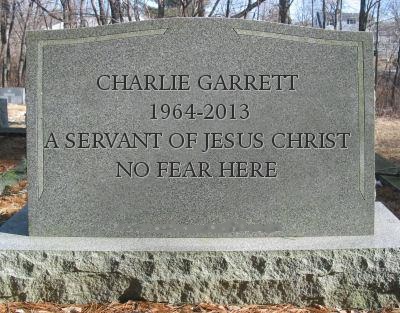
Tuesday, 17 December 2013
For if we live, we live to the Lord; and if we die, we die to the Lord. Therefore, whether we live or die, we are the Lord’s. Romans 14:8
Paul is speaking to believers here as he has throughout the epistle. The earth and all it’s fullness belongs to the Lord, it is true, but Paul’s words are not speaking in this general sense. Rather, his words are directed to those who are “His” in the sense of relationship. Although this should be obvious from the surrounding context, and even within the verse itself, it is not uncommon for verses like this to be ripped out of their context and universally applied. But they are directed to His people, not the world at large.
And so Paul begins with, “For if we live, we live to the Lord.” As an all-encompassing thought concerning our lives, he says “for if we live.” This is stated to tie back to the previous thoughts concerning eating food and observing days. He used these two concepts as emblematic of all matters which are doubtful. Food is a daily necessity which keeps us alive and sustains us. When we observe a day or days during the week we form the schedule around which we conduct our other affairs. In other words, these two things have been used by Paul as representative of our on-going life and activities. If we eat, we do so to the Lord. If we observe a day or days, we do so to the Lord. As these represent our general life, then he sums up that “if we live, we live to the Lord.”
In the same manner, when these activities cease because of our death, we are no less the Lord’s. Because of our position in Christ and our spiritual rebirth, our bodies may die, but we are eternally alive in Him. To confirm this he says, “if we die, we die to the Lord.” This is a wonderful verse which demonstrates the eternal security possessed by the believer. There is nothing, including death, which can separate us from Jesus Christ; we are always His.
“Therefore” – because of these things, “whether we live or die, we are the Lord’s.” This sum’s up what has been stated in verses 1-7. Having used that which sustains life (food) and that upon which we determine our weekly cycle of life (the basic 7-day rotating period established at creation), Paul has shown that we belong to the Lord.
But let us remember what this means from the perspective of those previous verses. The use of “we” isn’t speaking about the individual. Rather, he is speaking about all those who are in Christ. Whoever is in Christ, whether he lives or he dies, belongs to the Lord. As this is so, we are not to despise other believers over matters of food or days. Instead, we are asked to accept them and their mode of life and worship as having already been accepted by Him.
Life application: Make an effort when you encounter the word “therefore” to go back and review the context of that word. Verses, especially verses with conjunctions, are not isolated thoughts which can be pulled out of their greater context. Instead, they build upon what has been previously stated.
Lord God, the morning dew on a spider’s web, the changing of the breeze as summer turns to fall, the smile on each child’s face… these things show me how wise You are and how much You care for us. There is a continuous stream of delight and wonder in Your creation if I will but stop and ponder it. Thank You for allowing me a moment in time to enjoy life in Your presence. And thank You that because of Jesus, that moment will now last for eternity. Amen.
